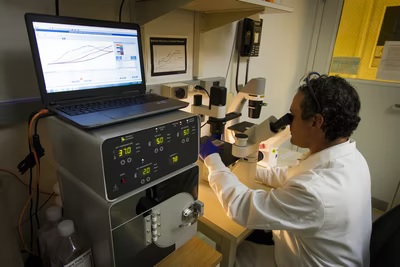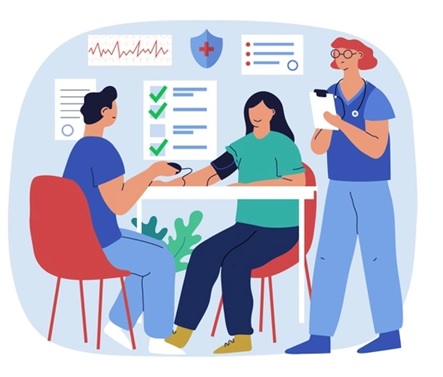
Diagnosis, a word that has more importance than one understands. A timely and correct diagnosis test of an ailment can significantly change the way treatment is acquired and ultimately performed. Errors in diagnosis can be detrimental and can prevent or delay effective treatment. According to a study, 1.6 million Indians died due to poor quality of care in 2016, nearly twice as many as due to non-utilisation of healthcare services.
Diagnostic services are used to determine whether or not a patient is suffering from a specific ailment. A diagnostic test determines whether or not a medical problem exists. Because of the nature and stage of development of diseases, they may need to be re-examined numerous times.
Diagnostic tests give a framework for healthcare providers to better assess the success of treatment in slowing illness progression.
1. Performing a Diagnosis
In the study of disease or the absence of disease, accurate diagnosis is crucial. It’s also crucial for healthcare providers to know how the condition has progressed in order to respond appropriately. Doctors are unable to reach a decision based on a single diagnosis assessment, thus they do repeated examinations. Following a full diagnostic test, reports are established and treatments are designed to slow the progression of the disease and finally cure it completely.
2. Monitoring the Treatment
What is a diagnostic test? Its identification of ailment. But it may not be sufficient in many cases. Sadly, certain diseases cannot be cured but can be slowed by healthy practices. It is feasible to ameliorate or avoid further deterioration of the patient’s condition. Health care practitioners closely monitor the physical activity and diet of such patients and make changes accordingly. Treatment choices can be customized to meet the patient’s needs.
3. Screening the Disease
In the early phases of illness development, some diseases, such as the modern COVID-19, may show only a few or no symptoms failing the medical diagnostic test. This is when the screening procedure comes into play. Patients who have not yet shown any signs of disease are submitted to screening tests to see if the illness has started to develop discreetly. Screening is usually performed at the community level rendering it much more affordable.
4. Prognosis

The process to anticipate the likelihood of illness in the near or far future is known as prognosis. Prognosis procedures are often performed on individuals who have a family history of severe diseases. In addition to assisting in the early detection and prevention of disease, it also aids in ensuring that the problem is completely eliminated.
It is crucial to emphasise the importance of diagnosis in recognising, treating, obtaining accurate findings, and curing disorders. Diagnostic testing can have a considerable impact on important healthcare decisions, but it also relies on accurate interpretation of test data and clinical judgement when prescribing treatment.
At Medulance, we ensure that you reach the hospital at the right time to get the timely diagnosis you deserve. Contact us today!
